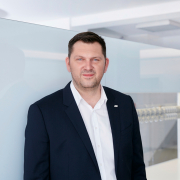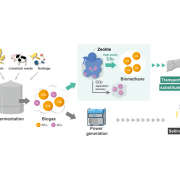Demonstration Project for Chemical Recycling Using Microwave-Based Technology
In April this year, Japan-based companies Asahi Kasei and Microwave Chemical launched a joint demonstration project with the objective of commercializing a chemical recycling process for polyamide 66 using microwave technology.
As reported by a joint press release, in the demonstration, scraps from manufacturing and post-use waste material of PA66 for airbags and automobile parts are depolymerized. “The process utilizes microwaves to depolymerize PA66 and directly obtain the monomers hexamethylenediamine (HMD) and adipic acid (ADA), which is expected to be accomplished at high yield with low energy consumption. The monomers obtained can then be used to manufacture new PA66.”
Asahi Kasei currently produces fossil fuel–derived HMD and ADA as intermediates to manufacture Leona PA66, an engineering plastic featuring heat resistance and rigidity. “PA66 is used in various applications, including plastic parts for automotive and electronic products, and yarn for airbag fabric, and its demand is expected to increase worldwide,” the companies informed. “As the world moves toward carbon neutrality, attention is increasingly focused on manufacturing processes for reducing greenhouse gas (GHG) emissions from chemical products derived from fossil fuels.” Microwave Chemical was promoting technological and business development to achieve carbon neutrality in the industrial sector focused on process development using microwaves, which can directly and selectively heat target substances with high energy efficiency. “For chemical recycling, Microwave Chemical is advancing its proprietary PlaWave technology platform for decomposing plastic using microwaves.”
Through development combining Asahi Kasei’s experience in manufacturing HMD and ADA together with Microwave Chemical’s achievements in the industrialization of microwave technology, the two companies aim to commercialize a manufacturing process for PA66 that can reduce GHG emissions compared to the conventional manufacturing process. “Laboratory-scale studies that began in fiscal 2021 have confirmed the high-yield depolymerization of PA66 using microwaves, as well as the principle of the separation and purification process after depolymerization,” the collaboration partners underlined. Bench-scale equipment would now be assembled at Microwave Chemical’s Osaka Factory by the end of the fiscal year 2023 (ending March 2024), and a small-scale demonstration trial using this equipment would be performed in the fiscal year 2024 to collect basic process data for commercialization.
Microwave Chemical’s PlaWave technology platform for decomposing plastic using microwaves can depolymerize PA66 with low energy and obtain HMD and ADA monomers in high yield, the information said. The manufacturing process for PA66 with this technology is expected to reduce GHG emissions compared to the conventional PA66 manufacturing process. Further reducing GHG emissions may be achieved by using renewable energy for the power required to generate microwaves. By verifying the process in an integrated manner, the demonstration project would aim to enable resource circulation of PA66 for further reducing GHG emissions. “Moving forward, based on the results of the small-scale demonstration trial, a decision on the possibility of commercialization will be made by fiscal 2025 following detailed analysis. Concurrently with the small-scale demonstration trial, construction of a business model that involves the entire value chain in the chemical recycling of PA66 will be advanced, aiming to achieve a circular economy together with stakeholders in the PA66 value chain.”
Asahi Kasei, by its own account, aims to be a global partner for its PA66 customers by providing optimal solutions for their carbon neutrality initiatives through studies of the practical application of material recycling and chemical recycling as well as trials for the commercialization of PA66 made using biomass-derived intermediates. Microwave Chemical is working to increase the scale of equipment and to make PlaWave more generally applicable to achieve the practical application of the chemical recycling of polymethyl methacrylate (PMMA, also called acrylic resin), automotive shredder residue (ASR), plastic containers and packaging, flexible polyurethane foam, and so on.
www.asahi-kasei.com, www.mwcc.jp/en
(Published in GLOBAL RECYCLING Magazine 2/2023, Page 13, Source: Asahi Kasei)










